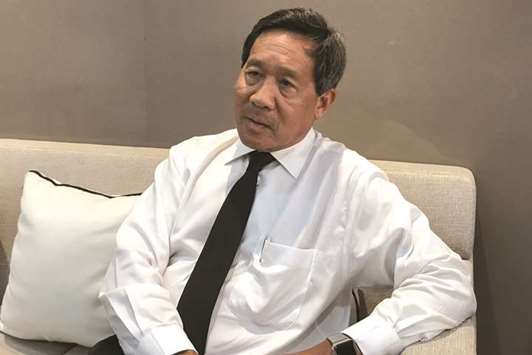Thai state energy group PTT Pcl’s July purchase of a stake in a liquefied natural gas (LNG) plant operated by Malaysia’s Petronas will be its model for securing natural gas in the future, its chairman told Reuters.
Thailand plans to triple its LNG intake by 2022 as its domestic natural gas output dwindles, and the strategy it is adopting is similar to Japanese utilities such as Tokyo Gas and Osaka Gas taking small stakes in Australian gas developments to lock up supplies.
In July, PTT Global LNG, a joint venture of PTT and its unit PTT Exploration and Production Pcl, took a 10% stake in a Petronas liquefaction plant for $500mn.
That was after PTT signed a 15-year LNG purchase agreement last year with the Malaysian state oil and gas company.
“Investments will follow a similar model of starting with a long-term purchasing agreement, and then jointly investing in a liquefaction plant,” PTT chairman Piyasvasti Amranand told Reuters in an interview in Bangkok.
“In the past, PTTEP would produce. Now we are investing more in ‘midstream’ capacity,” he said.
Thailand currently imports about 5mn tonnes of LNG per year, according to Ministry of Energy data, with 70% of that used for power generation.
Last year, policymakers set a target for annual LNG imports at 17.4mn tonnes by 2022.
In keeping with that target, PTT is planning to increase its annual regasification capacity to 21.5mn tonnes, from 10mn tonnes now, Piyasvasti said, but he did not say by when. “From 60% to 70% of LNG will come from purchasing agreements because we do not want to rely entirely on the spot market,” he said.
PTT Group, with nearly $15bn in cash according to the latest financial statements, is better placed for acquisition than many peers, such as Petronas and Indonesia’s Pertamina.
Piyasvasti said PTT was ready for further upstream investment to produce oil and gas, but gave no details as to where, or if it had specific targets for production or spending.
He also said PTT was being more cautious after some overseas projects showed no profit or had high impairment costs.
He pointed to a palm oil operation in Indonesia from which the company pulled out in 2015, partly because it was in an unfamiliar industry sector. The success of an investment in Canada’s Mariana Oil Sands Project is also in danger because of low oil prices, he said.
“Now we are more careful when investing in new projects,” he said.
The group’s biggest overseas investment is offshore Mozambique in southeastern Africa, where PTTEP holds an 8.5% stake in a project operated by US independent Anadarko Petroleum.
Piyasvasti would not say whether PTT was looking to build its holding there. PTT was also interested in renewable energy in Thailand, the growth of solar power and wind farms in particular, but PTT had made no significant investments to date, he said.
“PTT has a clear investment policy for renewable energy, but execution has been slow – slower than the rest of the private sector in Thailand,” he said.
Piyasvasti said the initial public offering of its PTT Oil and Retail unit may come as late as the second half of next year, but that it would be faster if not for burdensome government regulatory requirements.

Piyasvasti: PTT has a clear investment policy for renewable energy, but execution has been slow, slower than the rest of the private sector in Thailand.
